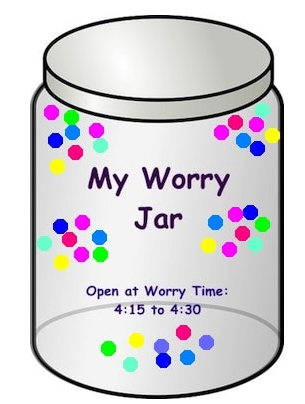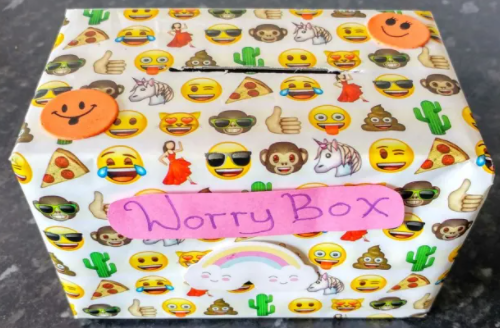
Are You Worried?
Meeting new friends, learning to swim, competing in sports, family problems at home - all these and many more are things that we all worry about. It is completely natural to feel a mix of emotions about things, and worry can be helpful as long as it doesn't last too long, become too intense or happen too often.
Talking about your problems is always the best way to start making them better. Often, by talking to your parents, carers or another adult about the things that are bothering you can help you to see things differently and will make you feel that you do not have to deal with it on your own.
We're here to help!
At school, you can speak to any adult, who will always be able to make time to listen to you.
If you are not sure what to say, try writing it down and giving the message to an adult you trust to read and come to speak to you about it after.

As well as trusted adults, you could talk to Childline. They are a service that helps lots of children in lots of different ways.
They can help when you are worried, upset, or angry, or if you feel that an adult is breaking the rules and not keeping you safe. If you don’t feel you have a trusted adult, or feel that you would rather speak to someone you don’t know, there are lots of different ways to get in touch with Childline. Click here to visit their website, and find out how they can help you.
Confidentiality promise: Confidentiality means not telling anyone else about what you’ve said. So whatever you say will stay between you and Childline, and you can feel safe talking to them knowing that no-one will find out. But sometimes, if they are worried about your safety, they may need to let someone know. They will talk to you about this.
Other resources:
Worry Jar
A Worry Jar is a place that you can put your worries, so you do not have to keep thinking about them. It is just storing them or putting them away instead of always thinking about them. Create a worry jar with your parent or carer by finding a glass or plastic jar and decorating it and then labelling it. Once made, write all your worries in a list on paper and cut each worry into its own strip of paper. Fold each worry and put it in the jar. Once all the worries are inside, close the jar



You can also make a worry box or get a special Worry Monster - anything will work!
Schedule Worry Time
The next step is to schedule "worry time". Worry time is a set time of day when you can sit calmly with your adult and discuss the things that are in the worry jar. Choose 10-15 minutes per day after school, or dinner (but not right before bed) and write this time on the jar (for example 4.15 - 4.30pm). During this time, open the jar and focus on one or two each day to talk over with your grown up. To end worry time, have a timer or alarm to sound, put the worries away for the next day.
Of course, it is normal for worries to come up at other times of the day, so it will be good to get into the habit of writing it down and "saving the worry" for worry time later that day.
By using the worry jar regularly there will come an exciting time that you realise something you had previously put in the jar is no longer a worry and you have successfully overcome! Celebrate this moment by taking the worry out and ripping it up!
Young Minds
MeeToo

The MeeToo app allows you to talk anonymously about difficult things with other people of a similar age or experience. You can get help with your problems or use your experiences to help others. The app is a safe space where all posts and replies are checked before going live so there is no harassment, bullying or grooming.





